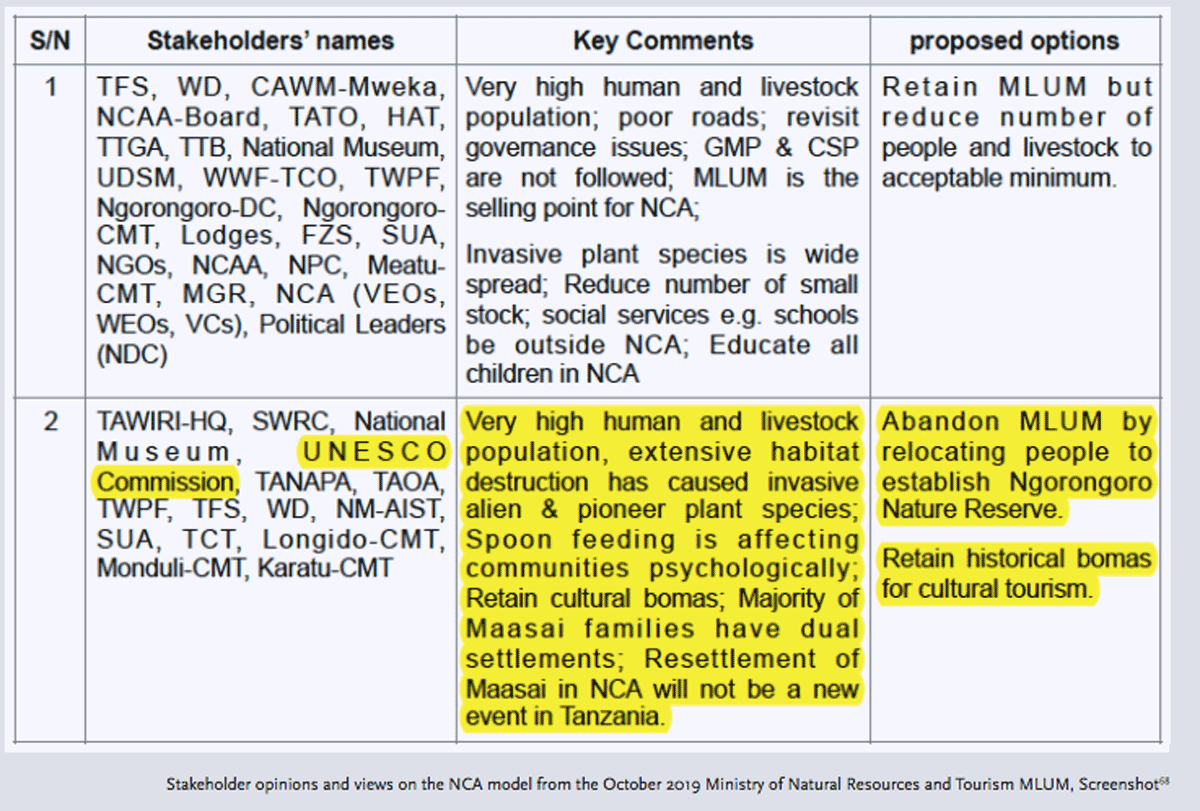Oakland Institute disputes UNESCO's claim it "has never at any time asked for the displacement of the Maasai people."

Ongoing protests by Maasai residents against the planned evictions from the Ngorongoro Conservation Area
On March 21, 2022 the UNESCO World Heritage Convention issued a press release, “Ngorongoro: UNESCO has never at any time asked for the displacement of the Maasai people.” The release stated that “Further to recent reports and inquiries, regarding the displacement of the Maasai people in the Ngorongoro Conservation Area World Heritage property, UNESCO wishes to recall that neither the World Heritage Committee — the intergovernmental body of 21 elected States governing the Convention — nor UNESCO Secretariat have at any time asked for the displacement of the Maasai people.”
The Oakland Institute calls out the blatant inaccuracy of this statement. First, in March 2019, a joint monitoring mission report from the UNESCO World Heritage Centre (WHC), the International Union for the Conservation of Nature (IUCN), and the International Council on Monuments and Sites (ICOMOS) visited the Ngorongoro Conservation Area and held consultations with local stakeholders. The mission report stated: “The NCAA urgently needs to implement stringent policies to control population growth and its subsequent impact on the OUV [outstanding universal value]” and called on the Tanzanian government to “complete the Multiple Land Use Model review exercise and share the results with World Heritage Centre and Advisory Bodies to advise on the most appropriate land use model, including in the matter of settling local communities in protected areas.” In response, the Tanzanian government proposed a new MLUM and resettlement plan which, if enacted, threatens the continued survival of the Maasai within the NCA.
While UNESCO attempts to distance itself from the Tanzanian government’s actions, it cannot be disputed that the international conservation agency played a role in advancing the current eviction plans. In the Ministry of Natural Resources and Tourism’s Multiple Land Use Model of Ngorongoro Conservation Area: Achievements and Lessons Learnt, Challenges and Options for the Future Final Report from October 2019, UNESCO’s advocacy position is clearly stated. In the “Stakeholder’s opinions and views on NCA model” table, the UNESCO Commission is listed as one of the groups whose key comments included:
“Very high human and livestock population, extensive habitat destruction has caused invasive alien & pioneer plant species; Spoon feeding is affecting communities psychologically; Retain cultural bomas; Majority of Maasai families have dual settlements; Resettlement of Maasai in NCA will not be a new event in Tanzania.”

Among the proposed options, the UNESCO commission is among the groups who suggested: “Abandon MLUM by relocating people to establish Ngorongoro Nature Reserve. Retain historical bomas for cultural tourism.” While these statements were made by the UNESCO Commission Tanzania office and not the UNESCO international secretariat or World Heritage Committee directly, the country office is a part of UNESCO. The international secretariat and WHC’s deflection of blame here is shocking — if they disagree with the UNESCO Tanzania country office they must publicly denounce these recommendations.
The World Heritage Committee Decision 44 COM 7B.171 adopted in July 2021, stated “there is the need for an equitably governed consultative process to identify long term sustainable interdisciplinary solutions (…) with participation of all rights holders and stakeholders, consistent with international norms and the policies of the Convention.” Nearly six months since this statement, the Tanzanian government has continued to unabashedly move towards implementing wide scale evictions.
If the UNESCO WHC willingly operates a World Heritage Site in a country that does not respect rights of Indigenous, they are fully complicit in any violation of rights that occur. The Oakland Institute calls on the UNESCO WHC to be accountable, stop attempts to distance itself from the actions of the Tanzanian government and use its influence to pressure the government to listen to the demands made by Maasai communities. If Indigenous rights continue to be violated and immediate steps not taken to address the ongoing livelihood restrictions, the NCA should be delisted as a World Heritage Site.
